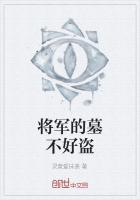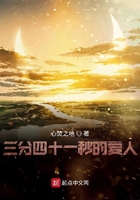I went to the station at ten o'clock in the morning. There was no frost, but snow was falling in big wet flakes and an unpleasant damp wind was blowing.
We passed a pond and then a birch copse, and then began going uphill along the road which I could see from my window. I turned round to take a last look at my house, but I could see nothing for the snow. Soon afterwards dark huts came into sight ahead of us as in a fog. It was Pestrovo.
"If I ever go out of my mind, Pestrovo will be the cause of it,"
I thought. "It persecutes me."
We came out into the village street. All the roofs were intact, not one of them had been pulled to pieces; so my bailiff had told a lie. A boy was pulling along a little girl and a baby in a sledge. Another boy of three, with his head wrapped up like a peasant woman's and with huge mufflers on his hands, was trying to catch the flying snowflakes on his tongue, and laughing. Then a wagon loaded with fagots came toward us and a peasant walking beside it, and there was no telling whether his beard was white or whether it was covered with snow. He recognized my coachman, smiled at him and said something, and mechanically took off his hat to me. The dogs ran out of the yards and looked inquisitively at my horses. Everything was quiet, ordinary, as usual. The emigrants had returned, there was no bread; in the huts "some were laughing, some were delirious"; but it all looked so ordinary that one could not believe it really was so. There were no distracted faces, no voices whining for help, no weeping, nor abuse, but all around was stillness, order, life, children, sledges, dogs with dishevelled tails. Neither the children nor the peasant we met were troubled; why was I so troubled?
Looking at the smiling peasant, at the boy with the huge mufflers, at the huts, remembering my wife, I realized there was no calamity that could daunt this people; I felt as though there were already a breath of victory in the air. I felt proud and felt ready to cry out that I was with them too; but the horses were carrying us away from the village into the open country, the snow was whirling, the wind was howling, and I was left alone with my thoughts. Of the million people working for the peasantry, life itself had cast me out as a useless, incompetent, bad man. I was a hindrance, a part of the people's calamity; I was vanquished, cast out, and I was hurrying to the station to go away and hide myself in Petersburg in a hotel in Bolshaya Morskaya.
An hour later we reached the station. The coachman and a porter with a disc on his breast carried my trunks into the ladies' room. My coachman Nikanor, wearing high felt boots and the skirt of his coat tucked up through his belt, all wet with the snow and glad I was going away, gave me a friendly smile and said:
"A fortunate journey, your Excellency. God give you luck."
Every one, by the way, calls me "your Excellency," though I am only a collegiate councillor and a kammer-junker. The porter told me the train had not yet left the next station; I had to wait. I went outside, and with my head heavy from my sleepless night, and so exhausted I could hardly move my legs, I walked aimlessly towards the pump. There was not a soul anywhere near.
"Why am I going?" I kept asking myself. "What is there awaiting me there? The acquaintances from whom I have come away, loneliness, restaurant dinners, noise, the electric light, which makes my eyes ache. Where am I going, and what am I going for?
What am I going for?"
And it seemed somehow strange to go away without speaking to my wife. I felt that I was leaving her in uncertainty. Going away, I ought to have told that she was right, that I really was a bad man.
When I turned away from the pump, I saw in the doorway the station-master, of whom I had twice made complaints to his superiors, turning up the collar of his coat, shrinking from the wind and the snow. He came up to me, and putting two fingers to the peak of his cap, told me with an expression of helpless confusion, strained respectfulness, and hatred on his face, that the train was twenty minutes late, and asked me would I not like to wait in the warm?
"Thank you," I answered, "but I am probably not going. Send word to my coachman to wait; I have not made up my mind."
I walked to and fro on the platform and thought, should I go away or not? When the train came in I decided not to go. At home I had to expect my wife's amazement and perhaps her mockery, the dismal upper storey and my uneasiness; but, still, at my age that was easier and as it were more homelike than travelling for two days and nights with strangers to Petersburg, where I should be conscious every minute that my life was of no use to any one or to anything, and that it was approaching its end. No, better at home whatever awaited me there. . . . I went out of the station.
It was awkward by daylight to return home, where every one was so glad at my going. I might spend the rest of the day till evening at some neighbour's, but with whom? With some of them I was on strained relations, others I did not know at all. I considered and thought of Ivan Ivanitch.
"We are going to Bragino!" I said to the coachman, getting into the sledge.
"It's a long way," sighed Nikanor; "it will be twenty miles, or maybe twenty-five."
"Oh, please, my dear fellow," I said in a tone as though Nikanor had the right to refuse. "Please let us go!"
Nikanor shook his head doubtfully and said slowly that we really ought to have put in the shafts, not Circassian, but Peasant or Siskin; and uncertainly, as though expecting I should change my mind, took the reins in his gloves, stood up, thought a moment, and then raised his whip.
"A whole series of inconsistent actions . . ." I thought, screening my face from the snow. "I must have gone out of my mind. Well, I don't care. . . ."
In one place, on a very high and steep slope, Nikanor carefully held the horses in to the middle of the descent, but in the middle the horses suddenly bolted and dashed downhill at a fearful rate; he raised his elbows and shouted in a wild, frantic voice such as I had never heard from him before:















